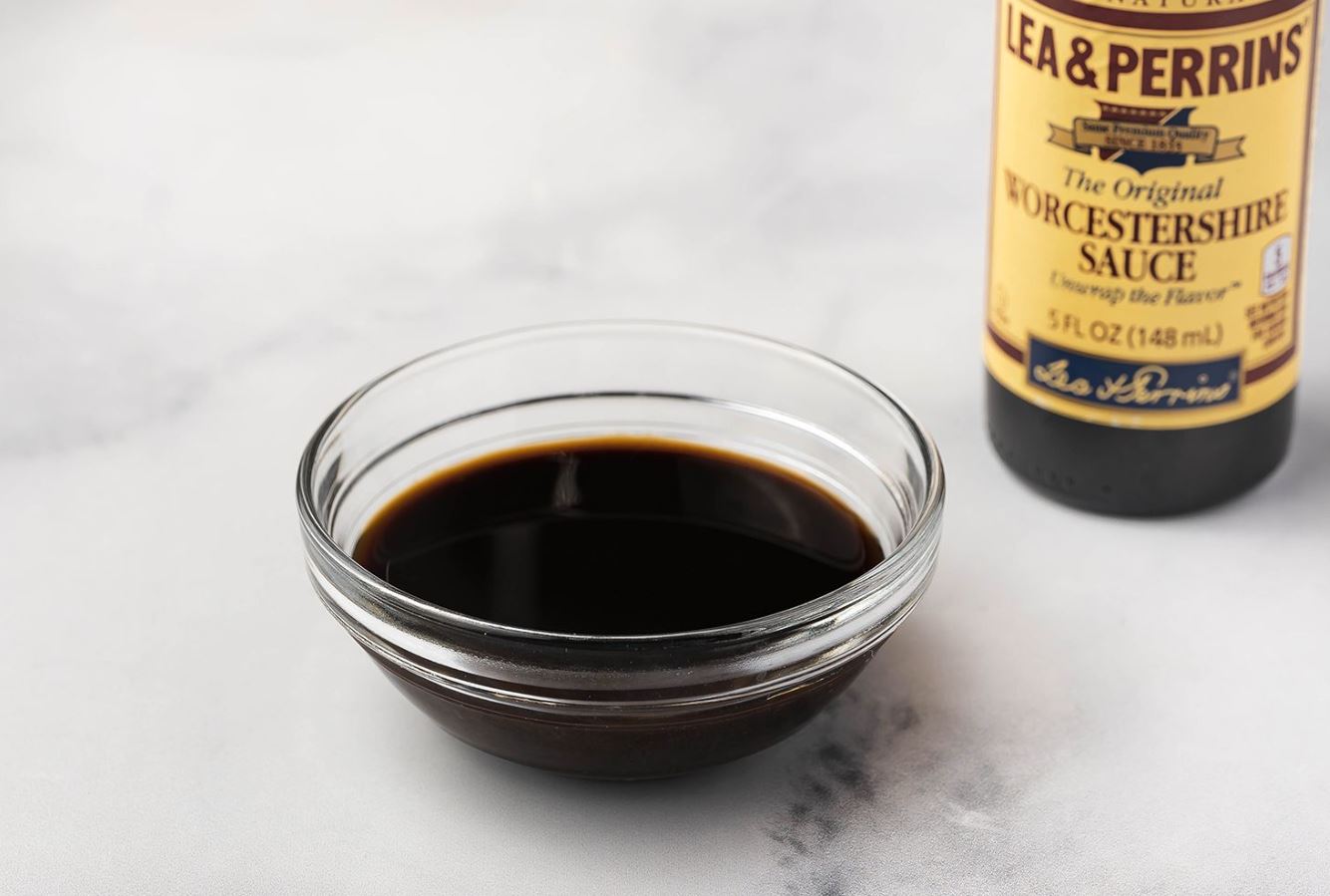Worcestershire sauce is a staple in many kitchens, known for its unique blend of flavors that enhances a wide variety of dishes. From marinades to Bloody Marys, this sauce adds a distinct taste that’s hard to replicate. However, if you follow a gluten-free diet, you might wonder if this condiment is safe for you to consume. With gluten sneaking into many processed foods, understanding what’s in your Worcestershire sauce is crucial. So, is Worcestershire sauce gluten-free? Let’s find out.
Table of Contents
What is Worcestershire Sauce?
Worcestershire sauce is a fermented liquid condiment that has been around since the early 19th century. It’s known for its complex, savory flavor, which comes from a blend of ingredients like vinegar, molasses, sugar, salt, onions, garlic, tamarind, and anchovies. These ingredients combine to create a rich umami taste that elevates various dishes, making it a must-have in many recipes.
The base of Worcestershire sauce is usually vinegar, specifically white vinegar, which is naturally gluten-free. However, not all Worcestershire sauces are made the same. Some brands might use malt vinegar instead, which is derived from barley and contains gluten. Additionally, certain natural flavors or soy sauce included in the recipe can be sources of gluten. Soy sauce often contains wheat, making it another potential culprit.
For those with celiac disease or gluten sensitivity, the presence of even small amounts of gluten can be problematic. That’s why it’s essential to know the specific ingredients used in the Worcestershire sauce you’re buying. Reading labels and understanding what goes into the product is key to maintaining a safe and gluten-free diet.
Is Worcestershire Sauce Gluten-Free?
The answer to whether Worcestershire sauce is gluten-free depends largely on the brand and the specific ingredients used. Many brands formulate their Worcestershire sauce to be naturally gluten-free by using ingredients like distilled white vinegar, which doesn’t contain gluten. However, not all brands are created equal, and some may include ingredients that can introduce gluten into the sauce.
One of the primary concerns is the type of vinegar used. While white vinegar is typically gluten-free, malt vinegar is made from barley, which does contain gluten. If a Worcestershire sauce uses malt vinegar, it’s not safe for those with celiac disease or gluten sensitivity. Another ingredient to watch out for is soy sauce, as traditional soy sauce often contains wheat, making it a potential source of gluten.
To ensure that the Worcestershire sauce you’re using is gluten-free, it’s crucial to read the label carefully. Look for products that specifically state they are gluten-free or are certified by a recognized gluten-free certification organization. These certifications guarantee that the product contains less than 20 parts per million (ppm) of gluten, which is generally considered safe for those with gluten sensitivities.
Popular Gluten-Free Worcestershire Sauce Brands
When it comes to ensuring your Worcestershire sauce is gluten-free, it’s best to stick with trusted brands that clearly label their products. Here are some popular options that are widely recognized for their gluten-free formulations:
Lea & Perrins (USA Version)
This is one of the most well-known brands of Worcestershire sauce. In the United States, Lea & Perrins uses distilled white vinegar, which is naturally gluten-free. The product is labeled as gluten-free, making it a safe choice for those avoiding gluten.
However, it’s important to note that Lea & Perrins Worcestershire sauce sold outside the U.S. might contain malt vinegar, which is not gluten-free. Always check the label, especially if you’re purchasing internationally.
The Wizard’s Gluten-Free Organic Vegetarian Worcestershire Sauce
This brand caters to both gluten-free and vegan diets. It’s made with organic ingredients and is free from gluten, making it a great option for those with dietary restrictions.
However, it’s always wise to double-check that you’re purchasing the gluten-free version, as they do offer different variants.
Wan Ja Shan Organic Gluten-Free Worcestershire Sauce
Known for its affordability and organic certification, Wan Ja Shan is another excellent choice. It’s gluten-free and vegan, making it versatile for various dietary needs.
This brand is readily available in many grocery stores, particularly those with a focus on organic products.
French’s Worcestershire Sauce
French’s is a familiar name in many kitchens, and their Worcestershire sauce is labeled gluten-free. It’s a reliable choice for adding that umami flavor to your dishes without the worry of gluten.
By choosing any of these brands, you can enjoy the rich, tangy taste of Worcestershire sauce while sticking to your gluten-free diet. Just remember, always read the labels to ensure the product meets your dietary needs.
Frequently Asked Questions (F.A.Q)
Can I make my own gluten-free Worcestershire sauce at home?
Yes, making your own gluten-free Worcestershire sauce at home is a great option if you want complete control over the ingredients. By doing so, you can avoid any hidden sources of gluten and ensure that your sauce is safe for consumption.
Are all versions of Lea & Perrins Worcestershire sauce gluten-free?
Not all versions of Lea & Perrins Worcestershire sauce are gluten-free. In the United States, Lea & Perrins uses distilled white vinegar in its formulation, which is gluten-free. However, in other countries, including Canada and the UK, the recipe may include malt vinegar, which contains gluten.
What other condiments should I be cautious about?
When following a gluten-free diet, it’s important to be cautious with other condiments as well. Soy sauce is a common one to watch out for, as it often contains wheat. Instead, opt for tamari, which is a gluten-free alternative. Barbecue sauces, gravies, and salad dressings can also contain gluten, particularly if they use malt vinegar or soy sauce.
Wrapping Up
Worcestershire sauce is a beloved condiment that adds a unique depth of flavor to many dishes, but if you’re on a gluten-free diet, it’s important to choose your sauce wisely. While many brands offer gluten-free options, some versions may contain ingredients like malt vinegar or soy sauce that introduce gluten.
